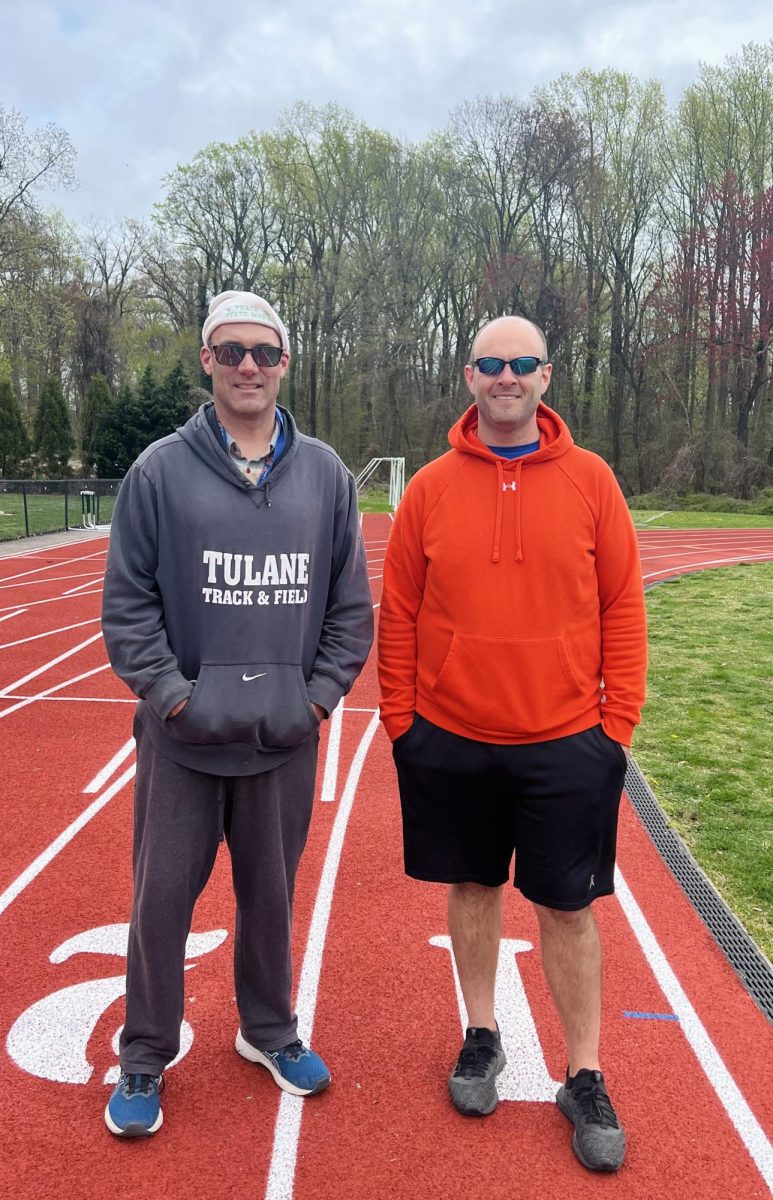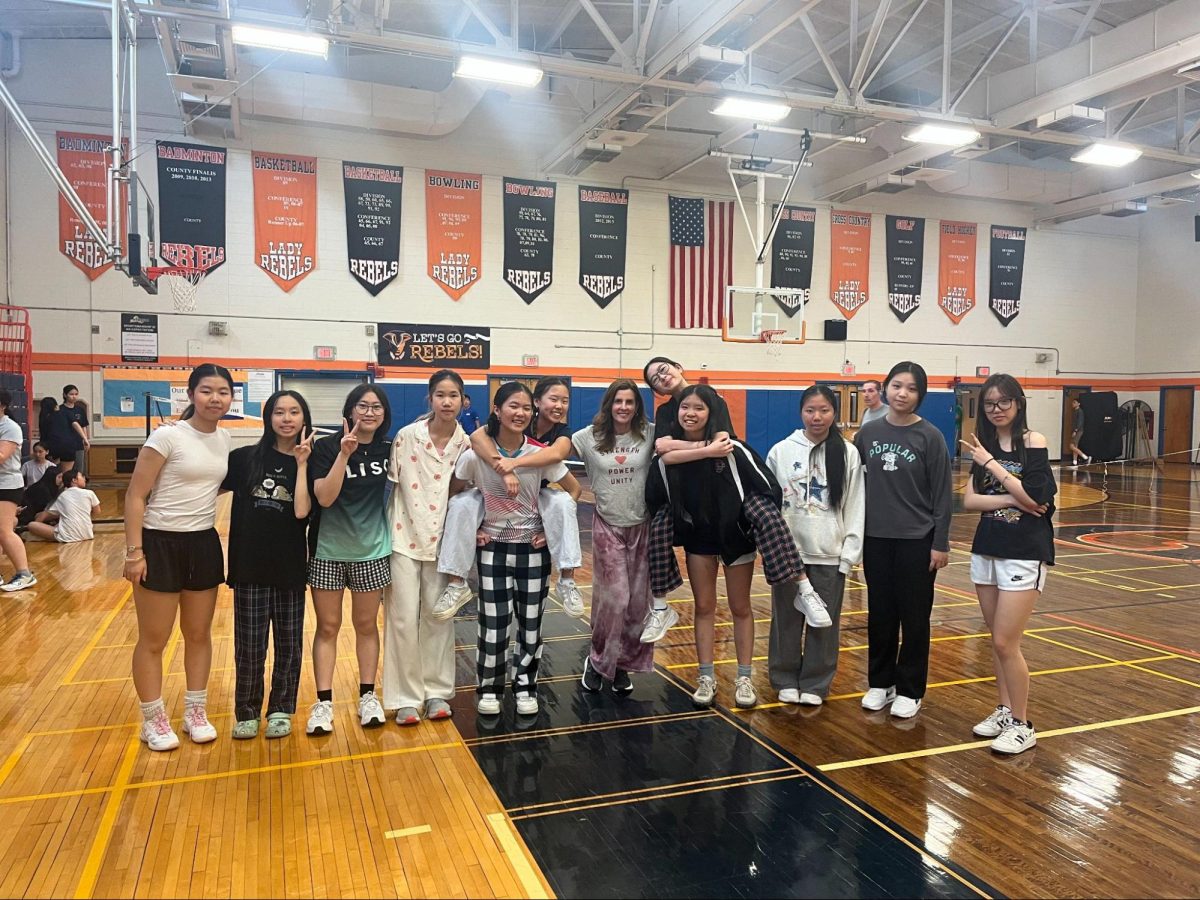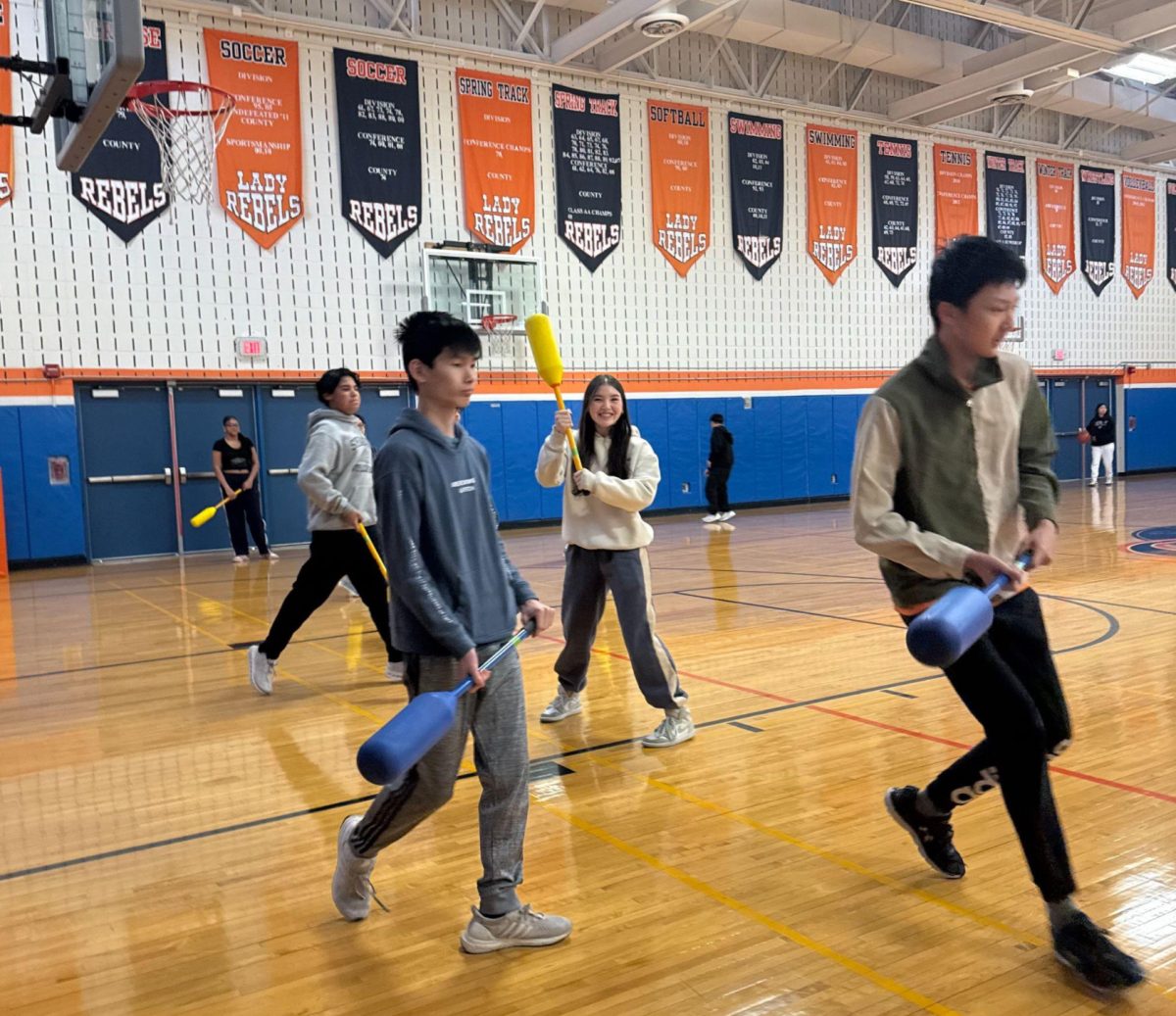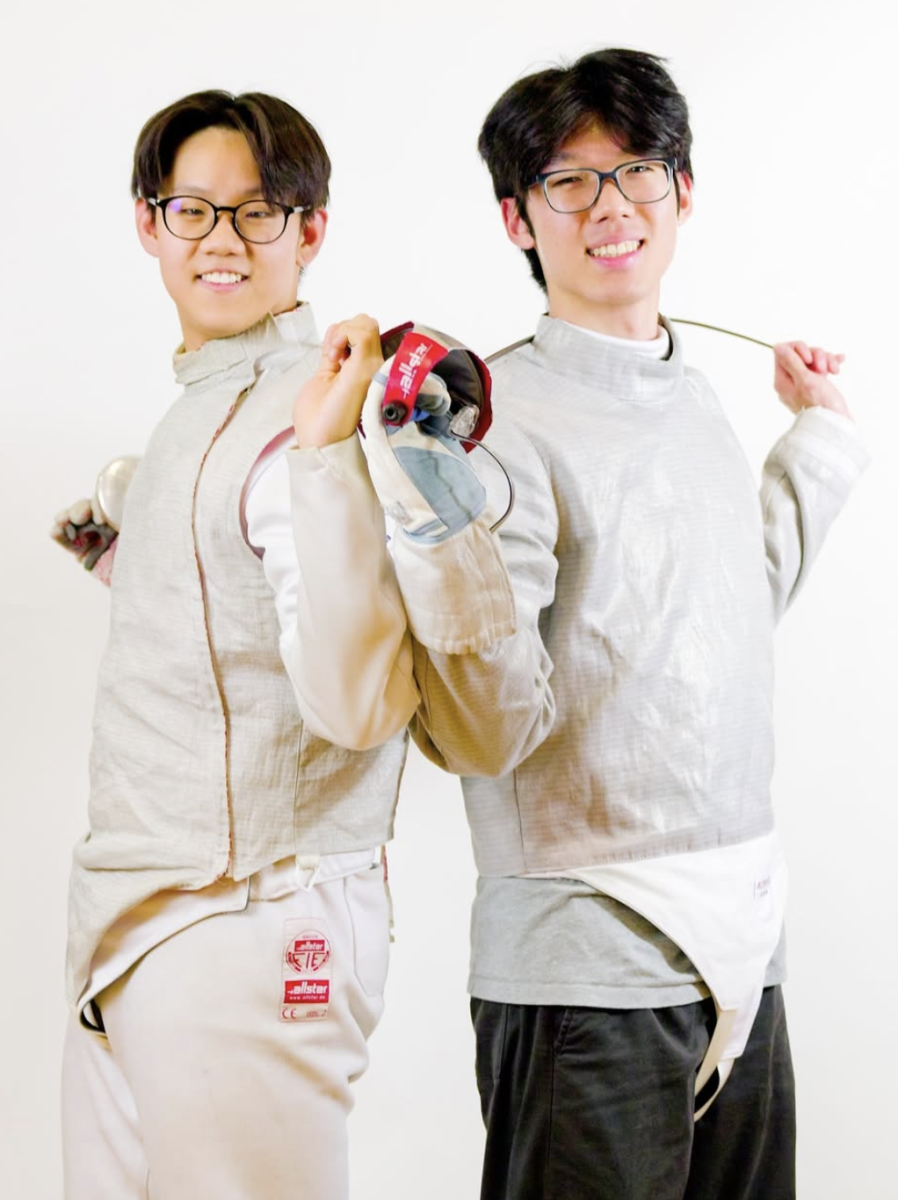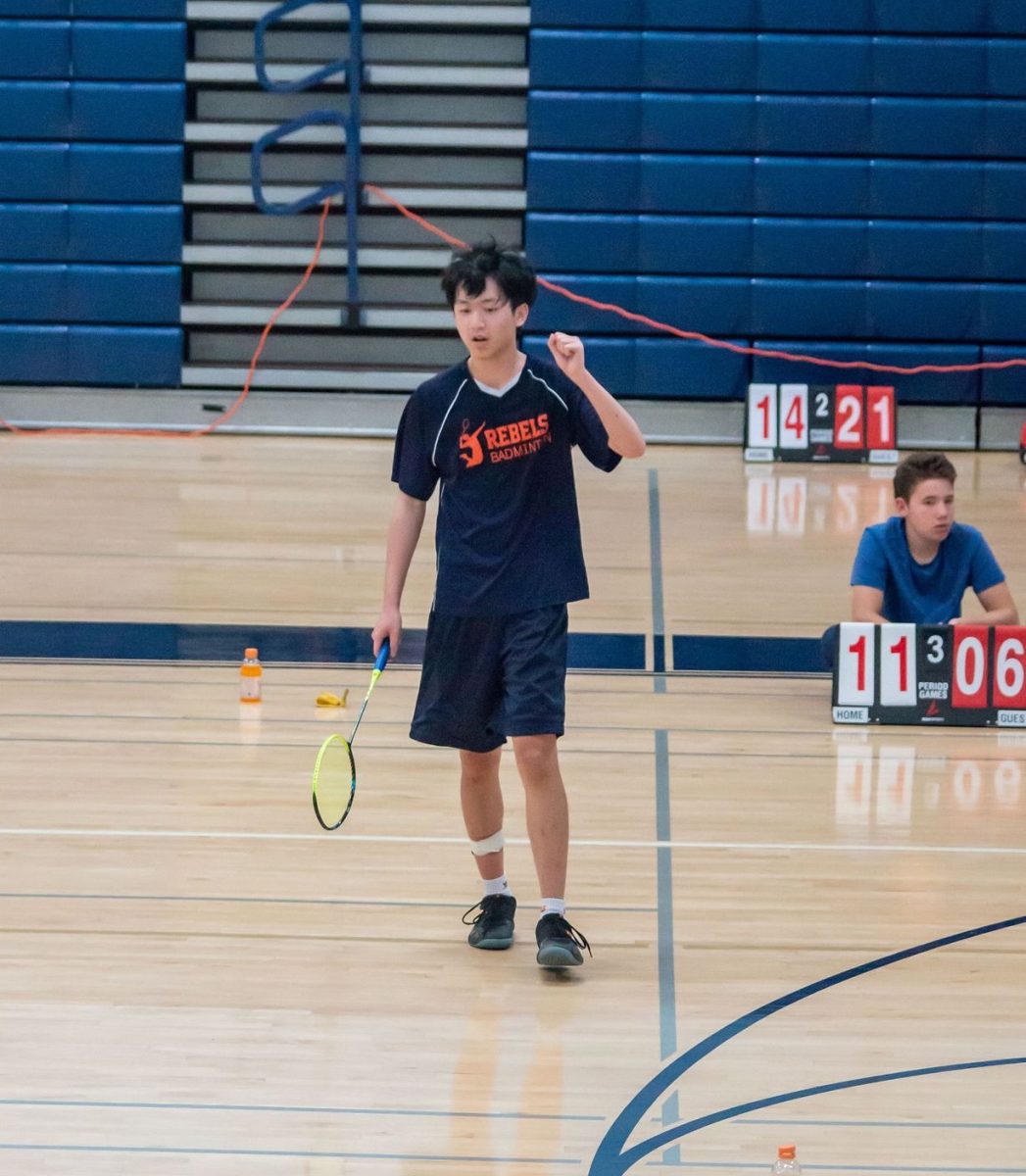Sarah Sun: How many years have you been coaching? What led you to come to Great Neck specifically?
Coach Damon Reader: I have been coaching at South High for 24 years, and I coached middle school in Harborfields before I came here. I’ve coached many different sports at every age through high school, starting with my own kids’ t-ball years. My previous job was in the middle school in Harborfields; it was great, but it just didn’t have a lot of technology, which was my interest. I was fascinated by the internet when it first came out, and at the time my job was in the library. What drew me to Great Neck wasn’t the sports, but rather Great Neck’s great libraries, academics, and access to technology.
Coach Ken Rice: I’ve been coaching now for 18 years in high school. I started coaching football at Clarke Middle School, and then I went to Floral Park Memorial High School to coach JV football, and then Valley Stream South High School. I was at Valley Stream South for seven years as the JV head coach, and then I went to Long Beach High School for one year before I moved to Florida, where I was an assistant football coach and then head track coach at Mandarin High School. I started coaching track my first year at Valley Stream South, mainly working with the throwers for the first four years. After that, I took over the girl’s winter program. When I moved back to New York, they hired me as a teacher at North High School. I was coaching football for the district team when there was an opening for winter track at South, which led me to take over the girls program after Coach Hudson left and moved to North Carolina.
SS: Why did you want to become a coach? Why cross country and track, specifically?
DR: All my life, I’ve always loved athletics. For my first job, my brother and I worked together. He was offered the lacrosse coaching job and I would volunteer with him everyday. He left after a year and I took over. I had a great time there, as we won our league in my second year. When I got to Great Neck, I realized I had coaching in my blood, but there weren’t any coaching jobs available, so I spent my afternoons running everyday all over campus as I trained for running the NYC Marathon. Then, one of the winter track kids who saw me running everyday told me, “Our coach just quit, and we think you’d be great.” Literally, I went in, handed over my resume, and was hired. The funny thing is Josh never even raced for me—he ended up quitting and joining the play. That was 24 years ago, and the whole reason I came here was because this kid convinced me and then didn’t even run. I was lifeguarding, which I still do, and I totally feel that that’s coaching too.
KR: I do run myself. I also coached running as it was another way to get my football players in shape—it helps build up another program in size and provides another opportunity for them in their future. They may recruit one of their friends who doesn’t play a sport, but they also are able to get in better shape running-wise. I also try to get them into the weight room more often to get into a regular lifting program that can hopefully help them both in football and track.

SS: How would you describe your coaching style? How do you approach creating workouts?
DR: It’s evolved over time. My main thing is that it has to be fun for both me and the kids. When I came to Great Neck, kids would miss practice all the time, and I had no idea how to deal with that. I learned that if you want kids to come, you gotta make it fun. As for creating workouts, I now really try to gauge what the kids want, which is something I didn’t do in the beginning. I found that kids stopped responding to the “here’s the way I do it and I expect you to to listen” kind of workouts. Especially with the internet, I’ve realized that I will not win against an athlete who wants workouts from a TikTok coach. It can be hard to incorporate it all, especially when you’re in the season like we are now, because I don’t want kids getting hurt. Injured athletes don’t help the team and will eventually get sick of feeling miserable and likely lose interest. This may be more important when you get older as a coach, but I don’t care about winning anymore. Maybe when I was younger, I had to prove it to myself and my athletes a little bit. Now, I’ve already won, and I focus more on making a culture where everyone wants to be there.
KR: You have to focus on what the athletes need and understand different groups/events and everyone’s abilities. I’ve read different materials throughout the course of my career, and I’ve seen which bits and pieces I like, especially programs that fit well with the athletes I have. Then, each event is different; for example, there are differences between sprinters and distance runners and what kind of workouts they need. Also, when it comes to throwing, there’s a lot of wear and tear on the body because of the different motions that you’re going through. There’s only so much you can do to help someone improve physically, but what you can work on is their form. That’s something Coach Reader and I talk about a lot—something you can correct and work on at every practice is form, whether it’s running, jumping, or throwing.
SS: What are your core values as a coach?
DR: I believe in creating a community where the kids enjoy running and coming to practice. There’s nothing worse than when you’re fighting with kids or when you don’t connect with them. Ultimately, you can’t force someone to like the sport. A lot of kids grow up playing ball sports, including my kids—every kid plays baseball, soccer, basketball, etc., and I would say they should. No one really grows up saying, “I want to go run and do a billion workouts,” so I have to coach differently. And, my job is to keep the kids healthy and make sure they enjoy it as much as they can.
SS: What qualities do you think are needed to be a star athlete?
KR: Some of it is just their ability. How good they become is how dedicated they are to the sport, and part of it is understanding that you have to give up certain things in life if you’re trying to be that top athlete. You’re not going to be the next LeBron James without sacrificing other things. It’s the same with any sport, because it takes time and dedication. With the athletes, you just need to look and see how you can balance everything, what they need help for, and break down the process for them and improve bit by bit each day.
SS: What do you find most rewarding about coaching?
DR: I love the people and the kids. I also love it when the kids come back and visit after they graduate. I love the Don Scott alumni race, when the alumni come back to say hello. I hope that 20 years from now, you’ll be like, that was awesome. The other day, one of the kids came back; he’s 33 now, and he came back to see me. I can’t tell you how much that means to me. The other day there were also about 10 alumni running around, from different generations. They didn’t even know each other—they just came back to run and eat together and reminisce on how great track was. Also, one of the other nicest parts about coaching is the other coaches. There’s a nice coaching community, and I actually view many of them as old friends who I look forward to seeing and chatting with.
KR: Just seeing people happy about competing, like getting excited about a PR or seeing the team do well. Track is a whole combination of everyone’s efforts—it’s not just one person or a few people doing it. Everyone’s working together, but you still have those individual achievements. You’re competing against yourself when trying to get a PR, but you’re also competing against people in your race. It’s really about seeing the kids be happy and be successful, both now and later on in life. Also, being a coach for so long, it’s great to see the kids come back and forth all the time. For example, at a meet at Roslyn, a girl I had coached at Valley Stream South is now the Sewanhaka coach. The other day, at the freshman-sophomore meet, someone I played football with in high school is also now coaching at Sewanhaka. As a coach, you get to have reconnections with people that you either coached, played with, or went to school with—that’s where you get the happiness and joy. I love seeing the PRs and everything, but ultimately, we’re here to try and make you grow and develop into better people. Hopefully, sports can be the outlet for you or be that key to getting someplace else.
SS: How do you view the relationship between academics and athletics?
KR: I always think it’s a great thing to have both. If you’re a high-achieving person academically, running and other sports take your mind off that for a little bit. It gives you a little relief from stress. But it’s an important balance, and athletics can help open up doors for you that you wouldn’t necessarily have. I’ve seen students who wouldn’t have gone to college, but because of athletics, chose to go. They start learning and paying attention more, because now they see it’s a future for them and that the college opens up doors. Ultimately, it’s embracing both, and creating a balance and a new understanding that sports can take stress off your mind from academics and vice versa.
SS: Are there any changes you’ve witnessed over the years, with regard to the sport, the athletes, or yourself?
DR: There’s been one major change in the 24 years I’ve been coaching: my new understanding of the importance of recovery. When I was a young athlete, it wasn’t as big of a deal. It was just “more is always better,” “if it hurts, push through it,” “you’re a wimp if you don’t.” I think the biggest change has been the understanding that you need to let the kids recover. If they’re injured, they can’t compete for you. We’ve been lucky that we have Emily, our athletic trainer, and I now have stretching routines and recovery days.
SS: What advice would you give to future coaches?
DR: One, listen to the kids and get to know the kids, two, make it fun, and three, it should be fun for you too. Over time you just develop that passion and love seeing kids have success. There is this legendary coach from Haverford College, which is always D3. He won multiple coach of the year awards and was infamous for tossing the awards into the local river. His point was that awards had nothing to do with him—it was always the athletes. He would say that a great coach is simply a good coach who has strong relationships with great athletes. I now judge myself as a coach from this perspective—enjoy the kids, focus on building relationships, and that will be what it will be. You do it for those experiences, and what’s better than winning is seeing the kids get better.
KR: It’s a tough balance with family and coaching, because there is only so much time you have in a day. For me, I can now bring my daughter, since she is older, to meets and practices and still coach the girls, so I get that extra time seeing her. It is important to have goals as a coach and know what you want to become, but also understand that timing and job locations are important as well. For example, if you want to be a head coach and a position opens up, is it the right fit for you? Also, you have to be willing to adjust and change things over time. Just because something worked, there is nothing wrong with tweaking it to make it better for the future.


